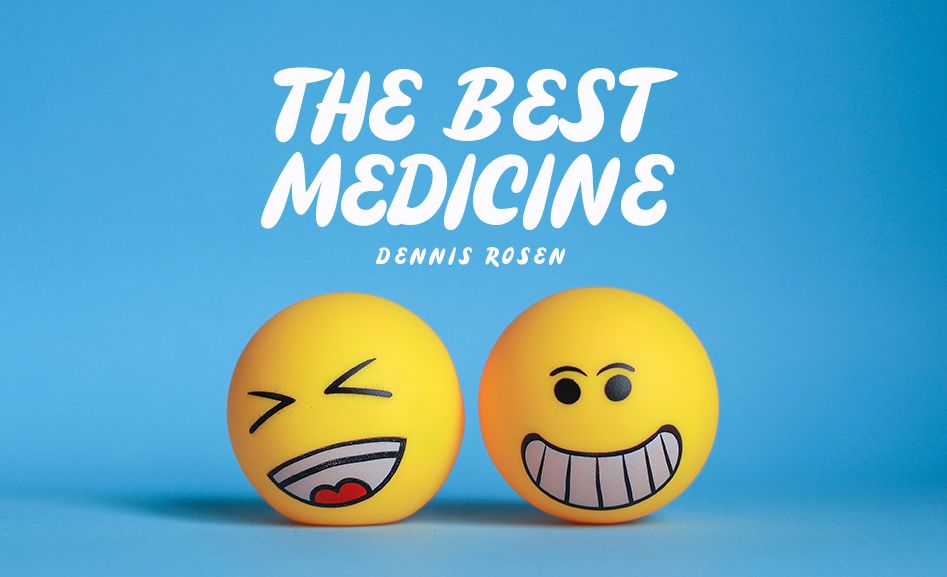
CBT: The Real Deal?
Cognitive psychology looks good and true. It certainly appears to have many advantages over Freudian psychology which is filled with blatant heresy, but...

Imagine that you are an engineer. You are given the job of making mathematical calculations that will be used to construct a modern skyscraper. The structural integrity of the entire building depends on the accuracy of your calculations – there is no room for error – your calculations must be completely accurate. The slightest fraction of an error can have devastating consequences.
Can we afford to be less exacting when it comes to protecting the safety and integrity of our souls? When it comes to your very life – are you comfortable settling for approximate truths – or do you want to know the real unadulterated and absolute truth?
The National Institute for Health and the American Psychiatric Association recommend Cognitive Behavioral Therapy (CBT) as the treatment of choice for a number of mental health problems. Forgetting that CBT is often used in conjunction with psychiatric medication and that according to Aaron Beck, a leading CBT psychologist, CBT has its philosophical origins in Stoic philosophy. What could be wrong with teaching people how to recognize where their thinking process goes awry and encouraging them to replace “dysfunctional” thoughts, feelings and beliefs with more “reasonable and adaptive ones?” On the surface, self-assessment and trying to think positively have much in common with what the Torah espouses. We also engage in self-assessment and endeavor to improve ourselves – but don’t be fooled. There are many partial-truths but only One Absolute Truth – what the Torah prescribes for anxiety, depression and other emotional problems is as different from CBT as a building that is built to last and one that doomed to topple to the ground – they may appear alike but they are not.
First of all what are the “more reasonable and adaptive” thoughts, and beliefs that cognitive therapists would like you to have? Secondly, dear reader, do you really believe that after your 10 to 15 sessions of CBT are over that you – alone – will be able to triumph over the powerful forces of evil that incessantly attack your thoughts seeking to sadden you and cause you fear?
Cognitive Therapy like all secular psychotherapies ignores the fundamental nature of man and therefore offers “solutions” that are not likely to last in this world and certainly can do nothing to rectify the soul of a person in distress. The Talmud defines man as “the creature who prays.” – this definition is what distinguishes us from the other creatures – we are the creatures who speak to God – Since it is our fundamental nature to worship G-d – science not only leads us away from Hashem, it leads us away from ourselves. There is no lasting help without Divine assistance and CBT is a therapy without a G-d. How can we ever expect to find our purpose and ultimate happiness in a therapy that ignores our basic nature?
Yesterday, I started feeling some of my usual signs and symptoms that tell me that once again I have strayed from Hashem. The “problem” was that I didn’t have enough time to prepare a Torah-lecture. The worry and dread that I felt manifested in my usually neck and shoulder pain as well as mental confusion and a feeling of being overwhelmed. Old habits take time to outgrow. I began to search for my own solutions. Reasoning with myself I struggled to slow down my breathing and tried speaking calmly to myself. Unfortunately the more I tried to calm down the more anxious I became. The truth be told – I was stuck – I simply could not squeeze more time out of busy day to finish my work. Then I remembered that wasn’t alone – I remembered that Hashem exists and that he wants me to turn to Him. I apologized to Hashem for forgetting about Him again and I admitted that my own efforts to help myself were not working. I immediately felt a loosening of the tension in my neck and shoulders and my breathing became slower and deeper. It then dawned on me that I was being “overly-responsible” again. Why was I burdening myself with having to prepare a lecture? My job is to pray for help – not to write “brilliant” lectures. I cannot describe how much better I began to feel (without medication). I was ready to trust Hashem once more and follow in His way. “I decided” that Hashem did not want me to waste another second thinking about my “problem”. “Go to your morning prayers”, echoed a voice from within – “just go now to the synagogue – don’t make yourself late” – so I did. On the way, I even felt joy in not knowing what I would be lecturing about but secure in the thought that Hashem Himself has an investment in me and in making the lecture useful for others – if it was important to Hashem for me to “succeed” then I would.
The problem was that by myself I could not escape from my own ulterior motives. Even what seems like a good deed (preparing a Torah lecture) can be done with selfish and self-serving intentions. Turning the outcome of my efforts over to Hashem helped to nullify my personal ambition for success – a Blessed gift that freed me from myself. Walking to the Synagogue, Hashem sent me some ideas that I recorded into my MP3 player – later that day, I jotted them down in outline form. When I finally sat down in front of the camera to deliver my speech – I admit that I felt some anticipatory anxiety because I had not prepared much. Nevertheless, I gave what was probably the best lecture I have given in almost a year.
Rebbe Nachman reminds us that there is a transcendental realm beyond this world of strife and complications. The Rebbe teaches us to constantly strive to connect ourselves to and unify ourselves with a higher world where there is no such thing as anxiety or depression – there, in the upper realms, there are no categories to explain these “problems” – they simply don’t exist – and that is the Absolute Truth. People with emuna believe in what is beyond even though they don’t know why they believe in it. They repeat the Rebbe’s words “just belief…just belief!” and though they don’t know why – they receive clear “proof” that Hashem is the One and only Truth and that the meaning of their lives can only come from the upper realm – never from here.
Cognitive psychology looks good and true. It certainly appears to have many advantages over Freudian psychology which is filled with blatant heresy but it does not. Here is the crucial point – behavioral science will take you off course because it divorces itself from morality and Hashem. Anything less than the full Truth causes cracks in the foundation of your life. One falsehood leads to another – the cracks widen – and tragedy results – G-d forbid. “Falsehood does not last”, says our Holy Talmud.
We must all pray to Hashem to be worthy of the self-honesty and the desire to know in our hearts that there is absolutely nothing to fear in this world. Hashem is the true doctor of the soul and he is ready and capable of quickly relieving whatever is ailing you. If you are currently undergoing psychiatric or psychological treatment, please don’t make any major changes without first obtaining sound rabbinical advice. In the meantime – Just cry out to Hashem for the desire to know His Absolute truth and the ability to accept it and live by it.
May you always see abundant Blessings and Divine protection.










12/12/2011
CET, not CBT I found this so interesting because what Rabbi Arush is really prescribing in all his books is a spiritual version of CBT: Let's call it CET: Cognitive Emuna Therapy. He suggests that instead of the usual thoughts of blame/complaint/guilt/failure/arrogance etc…. that we replace our automated responses with emuna thoughts instead such as : "It's all from Hashem", "It's all for the best", "It's a wake up call from G-d", "It's the way Hashem wanted it to turn out" etc. CBT can be spiritual!
12/12/2011
I found this so interesting because what Rabbi Arush is really prescribing in all his books is a spiritual version of CBT: Let's call it CET: Cognitive Emuna Therapy. He suggests that instead of the usual thoughts of blame/complaint/guilt/failure/arrogance etc…. that we replace our automated responses with emuna thoughts instead such as : "It's all from Hashem", "It's all for the best", "It's a wake up call from G-d", "It's the way Hashem wanted it to turn out" etc. CBT can be spiritual!
12/12/2011
fabulous That was a fabulous article. I also find myself worrying and panicking and realise I have again forgotten to ask Hashem first. So simple! I'm not surprised the talk came out so well. Divine inspiration. We cannot will ourselves out of negative thoughts but we can tell Hashem how we feel and ask for help. Thank you, Tzvi.